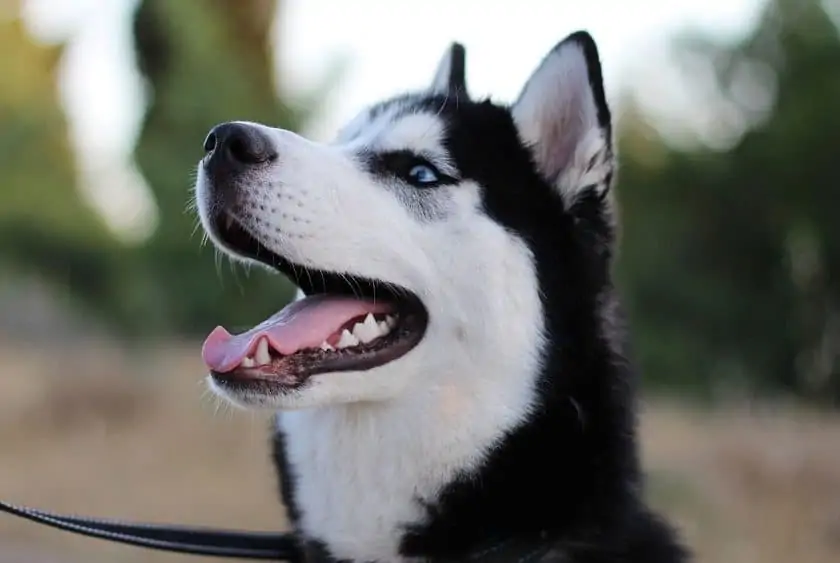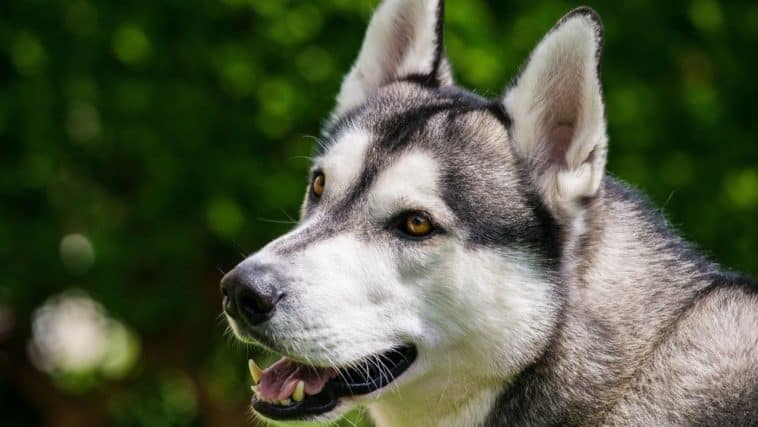Huskies are sled dogs known for their fluffy, double coats that protect them from harsh weather conditions in both summer and winter.
If you suffer with allergies but are interested in adopting a Husky, you might be curious to know: Are Huskies hypoallergenic?
In this article, I will cover some key information you should know about a Husky, including whether they are hypoallergenic.
So, let’s get started.
Table of Contents
What does hypoallergenic actually mean?
Hypoallergenic is a term that was first coined by the cosmetic industry to describe a product that was less likely to cause an allergic reaction for people with sensitive skin.
Given the large number of people who have sensitive skin all over the world, it was vital for the cosmetic industry to warn consumers about whether a product was hypoallergenic.
However, this can differ from person to person as allergies have such a wide spectrum and everyone is different. While the term hypoallergenic denotes a product that is less likely to cause an allergic reaction, there is still no guarantee that your body won’t react negatively.
If something is described as being hypoallergenic, then, it is just less likely to cause an allergic reaction.
What is a hypoallergenic dog?

There is no such thing as a 100% hypoallergenic dog breed, although some individual dogs may cause fewer allergy symptoms than others.
When breeders market dogs as hypoallergenic, it means that this breed is less likely to trigger an allergic reaction than other dogs.
However, therein lies the controversy. You don’t want to adopt a dog under the pretense that there’s no way that it is going to trigger your allergies, as this simply isn’t true.
The reality is, if you have allergies, adopting a dog is always going to be a risk even if they are marketed as being hypoallergenic.
If you’re thinking about adopting a dog but you’ve got a history with allergies or asthma, you should consult with your local doctor or GP before you consider welcoming a dog into your family.
While there is a list of ‘hypoallergenic’ dogs and you can research which dog would be best for you, there is always going to be a risk associated with adopting a dog when you know you have allergies.
It’s important that you weigh up whether this risk is worth it for your health and the welfare of the dog itself.
While it might not make much of a difference to you getting rid of a dog after a short period of time due to allergies, this can be incredibly unsettling and cruel for a small puppy that has made a bond with you.
Bearing this in mind, if you know you have severe allergies and the risk is much higher for you to adopt or buy a dog, then you need to be realistic.
It seems unnecessary for the puppy or dog to be put up for adoption for the sake of a trial run for you, so if your allergies are severe, make sure you weigh up the pros and cons carefully.
Are Huskies hypoallergenic?
No, a common misconception about Huskies is that they are hypoallergenic as their fur does not have a strong smell and because they typically only ‘blow’ their coats twice a year. Regardless of this, a Husky is not actually hypoallergenic or suitable for someone with allergies.
The real source of pet allergies is often a protein that’s in the saliva and urine of dogs and cats. This protein sticks to the dead, dried flakes or dander from your pet’s skin, causing your allergies to flare up.
Alongside dander being a large problem for allergy sufferers, dog hair can also carry other allergens such as saliva and urine that can be problematic for your allergies.
As I’ve mentioned above, some dog breeds are marketed as hypoallergenic because they don’t shed or they shed very little fur.
As these dogs don’t shed or shed significantly less than other breeds, the allergy-causing dander that sticks to their fur doesn’t get released into the air or onto the floor as much as with a shedding dog.
However, while you may have less dog hair with a non-shedding dog, no dog breed is hypoallergenic.
Do Huskies shed a lot of hair?
Huskies have a double coat that is medium length. While they ‘blow’ their coats twice a year, they still shed a moderate amount all year.
To manage this shedding, a Husky requires regular if not daily brushing to get rid of dead or loose hair.
This isn’t good if you suffer from allergies, as there will be a regular circulation of hair and dander in the hair which could cause your allergies to suffer. This could lead to you putting off grooming your Husky properly at the detriment of their health and happiness.
In addition to this, managing the hair around your house will lead to you needing to vacuum and clean your home on a daily basis to get rid of clumps of hair or dust bunnies that appear.
As a result of this shedding, a Husky is not hypoallergenic and is suitable for people with allergies.
In summary
There is no such thing as a hypoallergenic dog, although some dogs cause fewer allergy symptoms. Whether a dog is marketed as hypoallergenic or not, you still run the risk of triggering your allergies, the risk is just smaller if it is hypoallergenic.
To adopt a Husky when you know you have allergies is irresponsible and should be avoided if you are to be realistic. Dogs are often given up for adoption unnecessarily because of these allergies, and it is cruel to the animal and it’s welfare.
No matter how much you want a dog, you should always put the welfare of the animal above your own desires. If you know you have allergies, it isn’t worth the risk of adopting an animal and the dog ending up without a forever home.
Be sensible and always prioritize the well-being of the dog!

